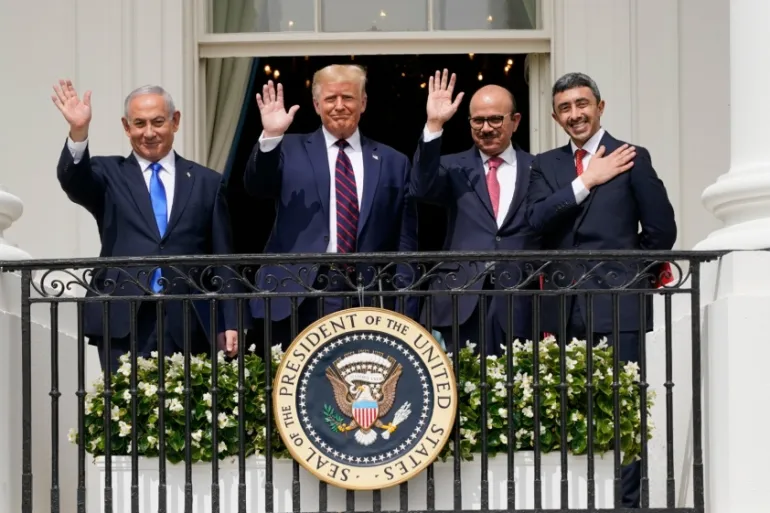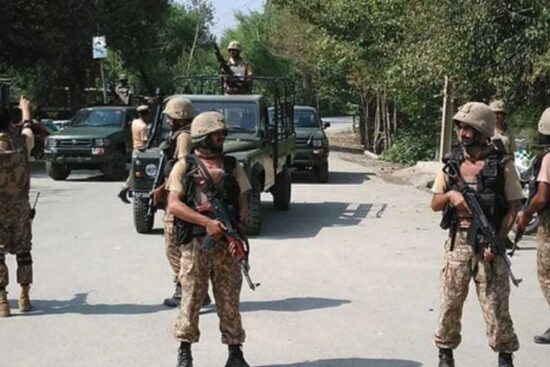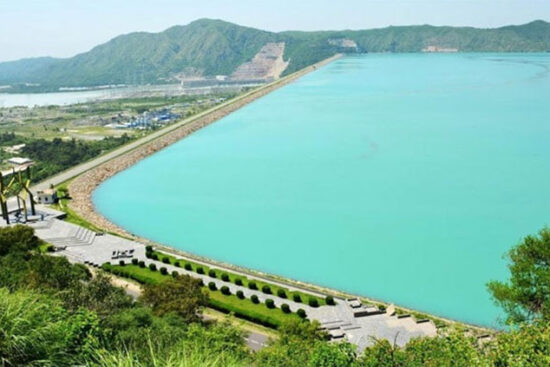
In the ever-changing political landscape of the Arab World, the signing of the Abraham Accords was a watershed development. The singing of Abraham Accord heralded a new trajectory of relations between Israel and its Arab neighbors. Abraham Accord acknowledges a strategic realignment whose objectives are simply to contain the Iranian threats in the region.
However, after the October 7 attack on Israel by Hamas, the normalization has halted between the Arab States and Israel. On one hand, the feeling of normalized relations between Arabs and Israel is pervasive; on the other hand, the bigger issues of the live suffering of the Palestinians remain unanswered as more than 33,000 Palestinian civilians have been killed by Israel’s forces in their so-called operation against Hamas.
A Shift in Regional Dynamics
The foundations of the Abraham Accords are considered to originate from complex problems that were provoked by the Arab Spring revolts in 2011, which intensified the already existing divisions in the Middle East. The conflict in the Middle East and the various versions of nationalism led Bahrain, the United Arab Emirates, Egypt, Sudan, Morocco and Jordan to shift their diplomatic priority towards fighting the influence of Iran.
While the concept of peace with Israel was once considered a strategic preference, it now has become the most important priority that has overruled the harshness of the commitment to the Palestinian cause.
Abraham Accord embodies a wider national security rebalancing within the region, as the monarchies rethink the matters, under emerging dynamics of the geopolitical environment. The Arab Springs ignited the disintegration of existing national frameworks and fashioned reframed geopolitics based on mutually mistrustful nationalisms and the clash of sectarian identities.
Bahrain, the UAE and other Arab signatories, after the US backing of Israel in the conflicts with Iran, saw it as another tool in their arsenal to counter Tehran’s sway and secure their place in the region. Meanwhile, Tehran in response is approaching Moscow to bolster its Military against the rising Israeli threat near its borders in the Gulf state.

Palestinian Reactions: Betrayal and Isolation
For the Palestinians, such normalization agreements imply a deep feeling of rebuke and betrayal among those who used to be their faithful supporters. They have been sidelined by regional developments as they fail to adjust to the transforming system, offering them little room for statehood ambitions. Quite often, the Arab Peace Initiative that calls for an Israeli withdrawal has been defended for decades, but no positive results have been achieved.
Also Read: Israel-Palestine Conflict: A Complex Reality
Sadly enough, the Palestinians are now more than ever isolated amid wide-ranging shifts taking place in the Middle East. Since October 7th, 2023, the ongoing repression of Palestinians by Israelis has induced more despair and disillusionment. Palestinians now believe that the future of their statehood has become more bleaker; while the Israeli establishment continues to suppress them unabated, taking over their settlements and entrenched occupation.
The Role of International Actors
The impact of the Abraham Accord covers the grounds of strategies of the key global powers. The United States, in the time of Trump’s Administration and now Biden, has come for the normalization process, with different strategies. Whereas Trump preferred a confrontational strategy, Biden strives to preserve the Accords and give sublime expression to the two-state solution.
The international community, consisting of the EU and the UN, has also stressed on reaching a peace agreement, while ignoring the underlying causes of the Israeli–Palestinian conflict. Nonetheless, their efforts have been hit by continuous violence and political stagnation spotlighting the complexity of the whole and the hurdles facing the process of real peace establishment in the region.
Pakistan, ensconced amid the complicated web of diplomatic connections in the Gulf region, finds itself at a crossroads as rising pressure from its close friends, forces it to recognise Israel. With varied cooperation links across the Gulf Cooperation Council (GCC), Pakistan’s longtime attitude on the Palestine problem now provides a serious conundrum, in determining its posture towards Israel.
Impacts on Israeli-Palestinian Dynamics
The ongoing construction of Israeli settlements and repeated acts of violence in the Palestinian territories highlight the complexity of inaction, and the reluctance of some Arab countries such as the Kingdom of Saudi Arabia (KSA) to fully recognize the normalization proves that the Palestinian issue may continue to be kept alive.
KSA is hesitant to join the Abraham Accords for two main reasons. First, it will harm its image in the eyes of Muslim states who still don’t recognize Israel. However, many analysts claim that this might not be the reason for Crown Prince Mohammad Bin Sulman’s rule. The second is a rather geopolitical one rather than an ideological one. Riyadh joining the Accords will damage its newly normalized relations with Tehran which Beijing brokered. Thus, this move will not only jeopardize its relations with Tehran but also Beijing might not appreciate it.
The Accords have also brought up some issues about the future of the Israeli-Palestinian peace process, especially the possibility of a Two-States solution. The agreements are seen by some as a move, a small step, towards cooperation and stability in the region, while others are concerned that they will make the status quo even more entrenched and put to shame the efforts to resolve the root causes of the conflict.
Conclusion
The Abraham Accords signifies a paramount discontinuity in Middle Eastern politics which reproduces the regional power scheme and redesigns alliances. Nevertheless, while possibilities and opportunities abound in the wake of normalized ties, the ongoing plight of the Palestinians still presents a grave issue. Going forward, nations in the region will need to focus on a solution that involves an understanding of long-standing issues and demands of actors, rather than simply an ending of the crisis. The Middle East peace process can only be successfully achieved by authentic discussions and coordination. In this way the dream of a region that is at peace and prosperous becomes real.
The opinions shared in this article reflect the author’s personal views and do not necessarily align with the institution’s official stance.

















Leave a Reply